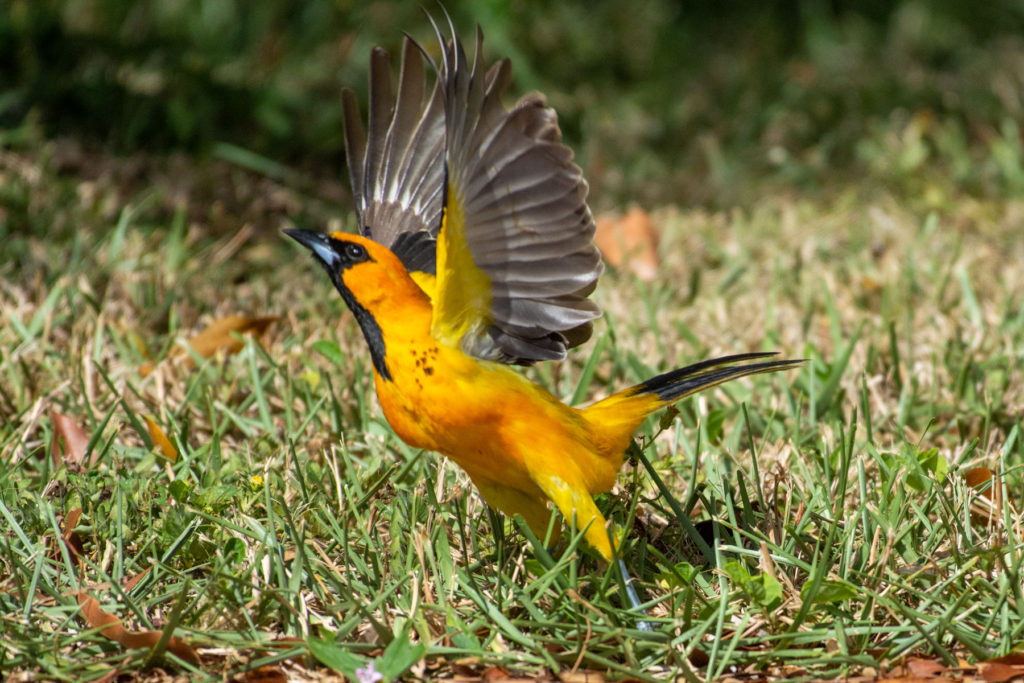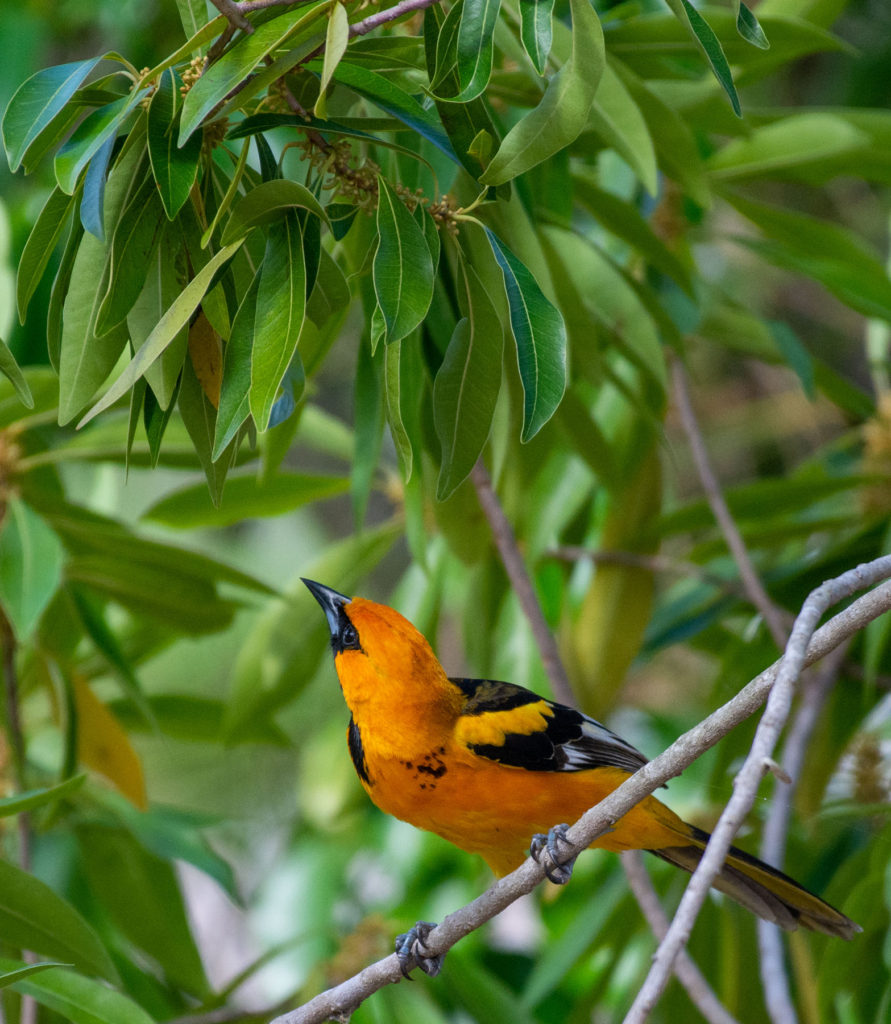One of the first birds I noticed when we moved to south Florida (20 years ago now? wow) was a loud oriole in our neighborhood: Spot-breasted Oriole (Icterus pectoralis). This bright yellow blackbird is native to southwestern Mexico and Central America, but it was introduced here from a captive population at the Miami Zoo that escaped in the 1940s. (The Cornell lab says they “probably escaped from a Miami tourist facility or from the pet trade in 1948.”) Those original escaped birds eventually established a local population that covers a fair swath of southeastern Florida (seven counties, apparently).
Their bright, cheerful song livens up the day. (If you’re curious, I recommend listening to it here: https://www.allaboutbirds.org/guide/Spot-breasted_Oriole/sounds)
Back in the 1950s, Alexander Skutch described the sound like this:
The song of the Spotted-Breasted Oriole is incomparably beautiful. It is a series of the clearest, most mellifluous whistles possible, blended into a continuous liquid stream of melody.
Life Histories of Central American Birds. Pacific Coast Avifauna 31 (1954): 274–275. Berkeley, California: Cooper Ornithological Society.
I used to hear these whistles all the time in my old neighborhood, and it rarely failed to make me smile. After we moved (less than a mile away), though, I didn’t hear it anymore. I guess they are a very local bird!
This spring, for the first time in the ten years since we moved to our new neighborhood, I started to hear those mellifluous whistles again. I was convinced that a mockingbird had learned the song and was just taunting me, though, because I never did see these fairly conspicuous yellow birds around the ‘hood.
Then the other day, I found out that they were actually here. A pair of them visited a tree in our front yard and spent at least a half hour cleaning the tree and surrounding lawn of caterpillars and other small delicacies. They didn’t take anything back to a nest, so I’m not sure whether they’re a breeding pair, but there are two of them, and they’ve been singing every day, so I’ve got my hopes up that they’ll establish a nest this year.


